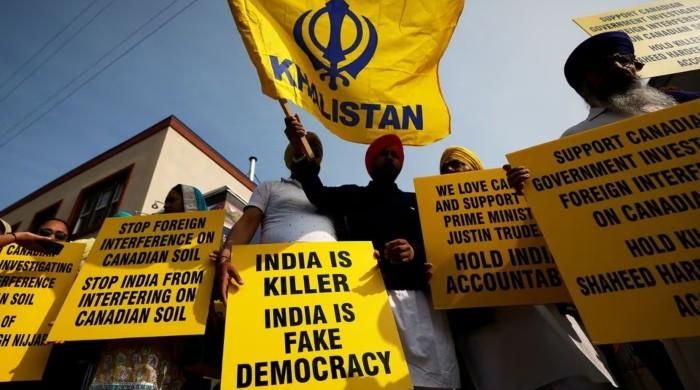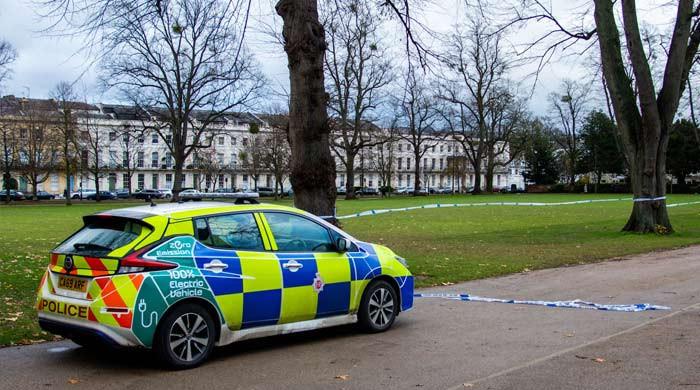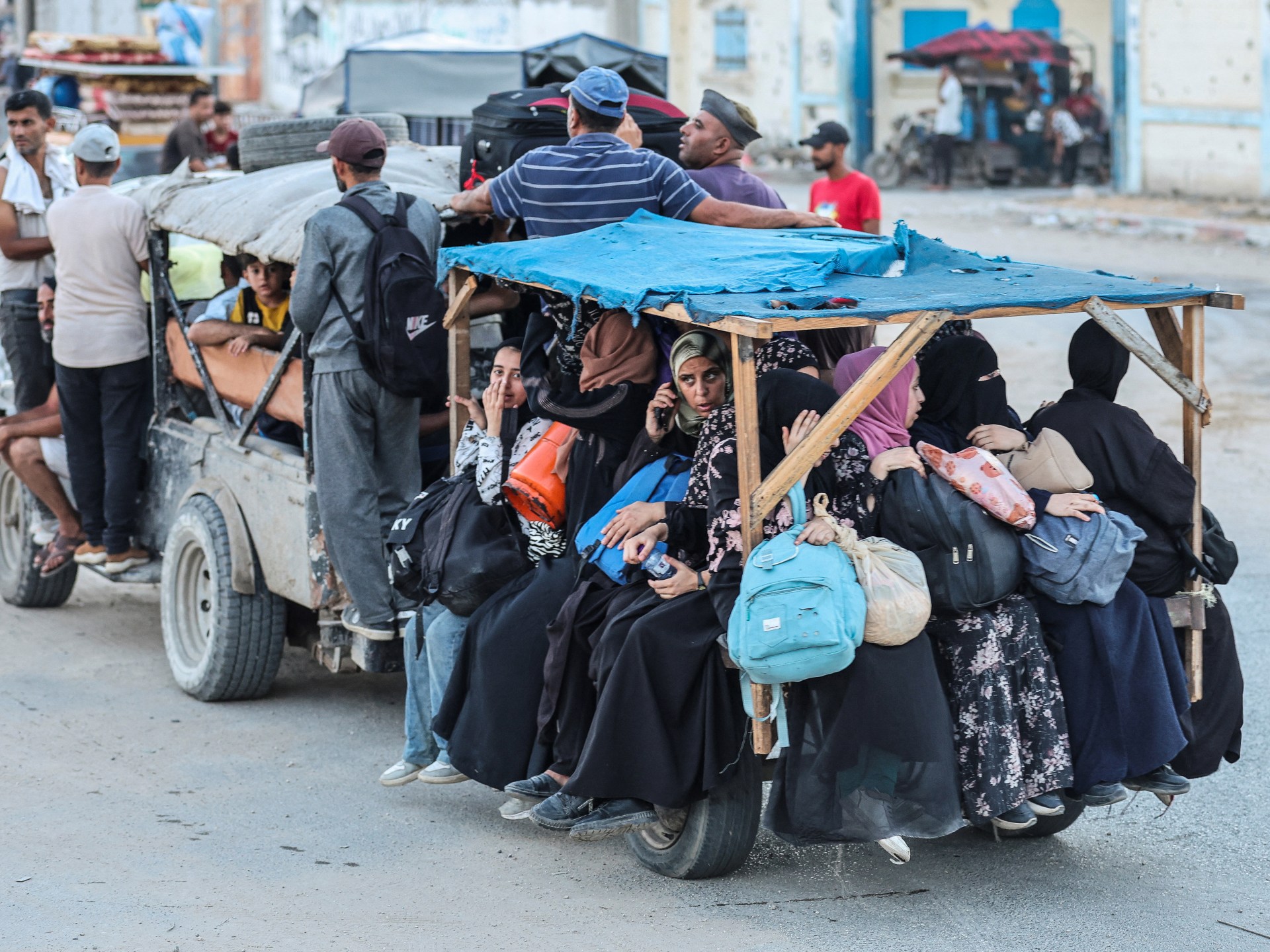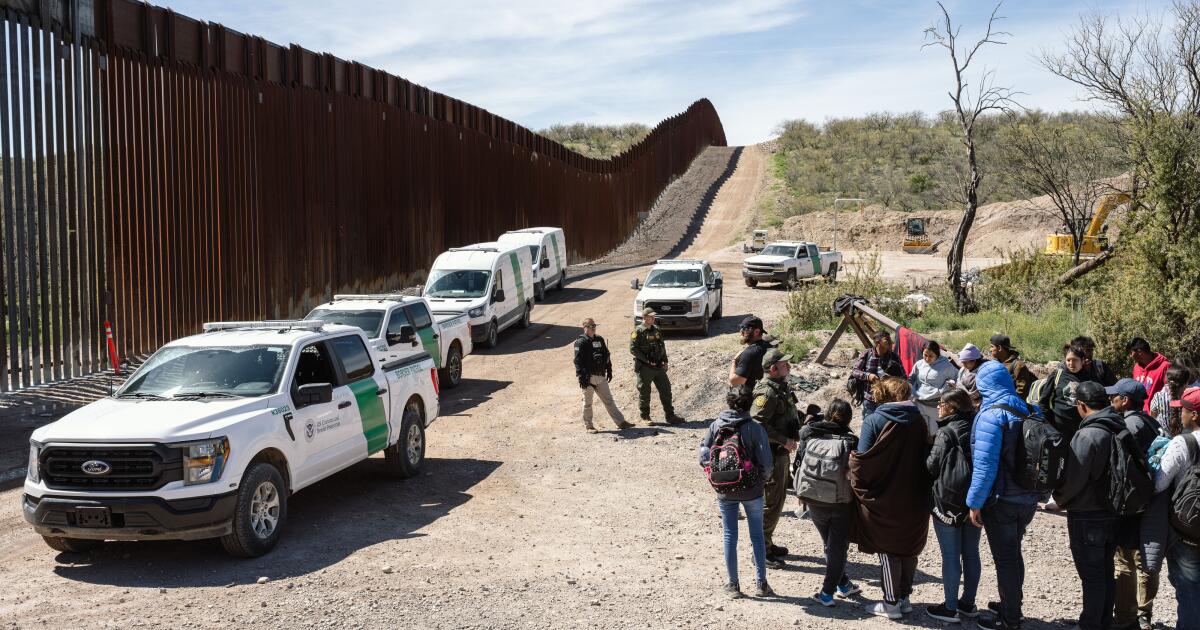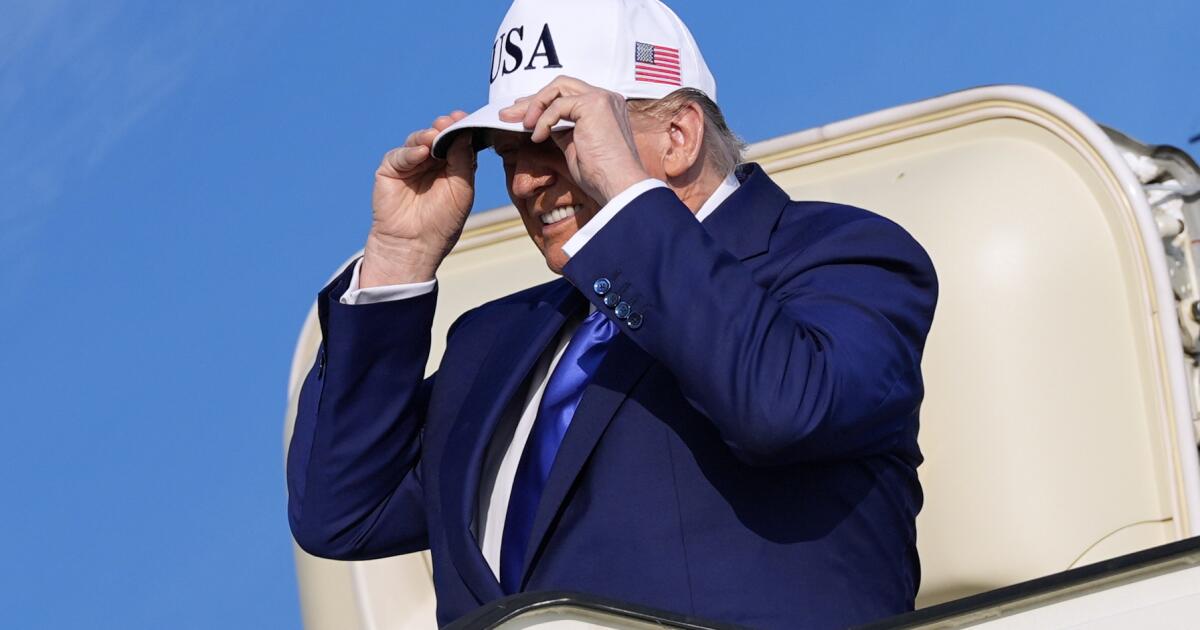UK police issue 'Osman notices' following calls for investigation into Khalistani activist's sudden death
- Sikh leaders warn that the Indian government is trying to silence them.
- The connection to the Indian government makes sense, says a Sikh man.
- The UK Sikh Federation says Sikh leaders are taking protective measures.
LONDON: UK counter-terrorism police have warned pro-Khalistan Sikhs living in Britain that their lives are in danger amid rising Khalistan activism and state-sponsored intimidation by the Narendra Modi regime, according to media reports.
The times has reported that pro-Khalistan Sikhs in the UK have received “Osman notices”, in which West Midlands Police warned of a “threat to life” against them. British Sikh activists fear they could be linked to planned murders in the United States and Canada by agents of the Indian regime.
Police in the UK issued Osman notices after calls for further investigation into the sudden death of Khalistani activist Avtar Singh Khanda, 35, who campaigned for a separate Sikh state and died suddenly and mysteriously in Birmingham in June. Hardeep Singh Nijjar, chapter leader of Sikhs For Justice Canada, who was murdered a few days later by Indian state agents on Canadian soil. Khanda's family and Sikh groups have said they suspect he was killed in a possible poison attack by the Indian regime.
Police in the United Kingdom issue Osman threat letters to warn of a death threat or risk of murder to the potential victim. An Osman warning (called a “life threat warning”) is issued when the police have enough information to be aware of the risk of danger, but not enough evidence to arrest the would-be killer. The issuance of Osman notices to Sikhs, who are typically associated with warring organized crime gangs and allow police to warn a potential victim, underlines the extent of such tensions.
Sikh leaders in Britain have long warned that the Indian government is cracking down on dissent in the diaspora and trying to silence separatists who want an independent Sikh state known as Khalistan.
One Sikh who received a warning from Osman told the newspaper that he originally believed the threat came from religious fundamentalists in the West Midlands community, who attacked him because he was not afraid to speak out about their rhetoric. However, since Indian agents were accused of a murder in Toronto and of planning the New York murder of Sikhs For Justice (SFJ) founder and leader Gurpatwant Singh Pannun, he believes it is the Indian state.
In November 2023, the US State Department charged an Indian government agent with directing the attempted assassination of US citizen Pannun on US soil. The accusation made public also provided new evidence that Indian agents killed Nijjar and were desperate to kill Pannun.
The man, whose brother and father also received a tip-off from Osman in the West Midlands, said: “A connection with the Indian government would make sense because my father and I are vocal in the community and independent. I have posted things on Twitter and Instagram against the regime. There are a lot of serious things going on in the Sikh community and I don't think it's impossible.”
He acknowledged that it would be a “pretty big conspiracy” but added that the option was now “impossible to ignore due to international developments.”
U.S. prosecutors said in November that the Indian intelligence agency had recruited Nikhil Gupta, an Indian national, to pay a hitman $100,000 to carry out Pannun's murder in New York.
In the United Kingdom, Sikh community leaders have warned that the Indian government has listed peaceful protesters who are legitimately calling for Khalistan's independence, calling them enemies of the state.
Jas Singh, of the UK Sikh Federation, said Sikh leaders were taking protective measures, including not traveling alone. “There's a really heightened sense of concern.”
Jas and other community leaders are calling for a formal inquiry into the death of Khanda, who died suddenly at Birmingham City Hospital just days after being diagnosed with acute myeloid leukemia and a blood clot in his lungs.
Indian authorities had blamed Khanda for lowering the national flag at a protest in March outside the Indian high commission in London. He was named in the state press, but the Metropolitan Police confirmed that he had not been arrested as part of the investigation into him. Sikh activists say efforts to conduct a private autopsy were blocked and believe it is no coincidence that Khanda's death came after weeks of coverage in Indian state media.
The Sikh man who received Osman's warning, who is in his thirties, said he had tried to find out from West Midlands Police who was behind the threat against him and his family, but they told him they could not give any more information.
“They just told me to take safety measures to protect myself,” he said. “The police have done nothing more.”
The man said he had heard of other warnings since he, his brother and father received them in March. “Something sucks, it doesn't make sense. If it were the Sikh fundamentalists, they would have seen us alone many times since then and have done nothing. In the context of what happened in Canada and these international threats, it really makes me wonder what is going on.”
At the weekend, large numbers of Sikhs gathered at Guru Nanak Gurdwara, Smethwick, at the call of the Federation of Sikh Organizations (FSO) to express their deep concern at recent high-profile examples of transnational repression in Canada, the United States United States and the United Kingdom. by the Indian government against Sikh activists in the diaspora. Sikh leaders said they were angry at the silence of the Rishi Sunak-led UK government in the face of transnational repression by the Indian government.
They said that while the Canadian government and the US administration have publicly exposed the Indian government ordering terrorist acts against Sikh activists on Canadian and US soil, the UK government under Sunak was in cahoots with the Indian regime.
Resolutions were also passed condemning the UK government, under Sunak, for demonizing and attacking Sikh activists to appease India by dishonestly introducing the phrase “pro-Khalistan extremism” into the UK government's vocabulary to appease to India instead of addressing the threat to Sikh security. Activists in the United Kingdom.
Dabinderjit Singh, senior adviser to the Sikh Federation (UK), said: “These resolutions are a signal to all UK politicians in a general election year who visit Gurdwaras in the hope of talking about being put on the spot. for the false demonization of the Sikhs. and transnational repression by the Indian government.
“The Labor Party and its leaders have made promises to the Sikh community and there are high hopes that an incoming Labor government will take a positive approach to the concerns of the Sikh community. We must have a radically different approach towards India. “People like Sunak as Prime Minister and Priti Patel as Home Secretary have blatantly used their positions to attack British Sikhs and appease India without a proper challenge.”
A West Midlands Police spokesperson said: “We received information suggesting members of a family may have been at risk of harm. “We have processes in place when we receive information about threats to people and, in line with our duty of care, next of kin were informed and given advice.”

